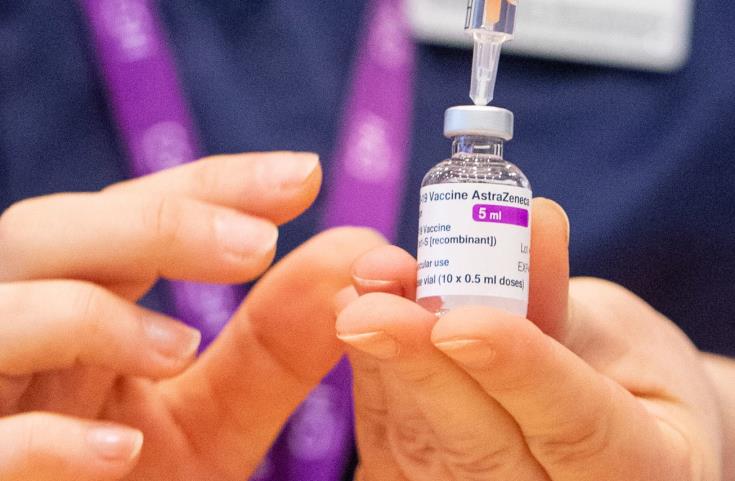Cyprus’ vaccination program has slowed with AstraZeneca COVID-19 vaccines not available to administer before 15 February while health authorities are undecided whether older groups should get the vaccine.
According to a source close to EU negotiations with AstraZeneca, the first batch of 69,403 doses earmarked for Cyprus in the first quarter, are expected to arrive sometime next week.
Last month, the Health Ministry said it was told by AstraZeneca that the first batch would be delivered on 7 February.
The AstraZeneca vaccine is considered the cornerstone of the Cyprus government’s vaccination rollout plans with 1.2 mln doses ordered. It is easily transportable and can be stored at normal fridge temperatures.
The second batch is expected sometime after 17 February while the third towards the end of the month.
“When a pharmaceutical commits to a certain date, they usually mean the week beginning on that date. So, the vaccines will come after that date,” commented the source for the Financial Mirror.
The source said the Health Ministry has yet to decide which age groups will be given the AstraZeneca vaccine, as tests have not been carried out on age groups over 55.
“Health authorities will have to come together to evaluate data at hand and draw a vaccination plan for the AstraZeneca Vaccines.”
It is understood, the authorities have not yet decided whether they will administrate the vaccine to age groups over 65, as there is no trial data available, and only five countries have done it so far.
The UK is one of them, with Prime Minister Boris Johnson coming under fire for taking a risk with the lives of the country’s elderly.
France
France has approved AstraZeneca’s Covid-19 vaccine but has recommended that it be used for now only for people under 65 and health- and care-sector professionals, due to a lack of data of its efficacy among older age groups.
On Tuesday, Sweden recommended limiting use of the vaccine to those aged between 18 and 64, while Poland recommended its use only for 18 to 60-year-olds.
German health advisers called for a similar approach last week.
The UK is allowing use of the vaccine in anyone over 18 with no limits on older people, and the jab has helped the country race ahead in the effort to protect its population.
Combined results from four clinical trials of AstraZeneca’s COVID-19 vaccine in the U.K., Brazil and South Africa showed that the AstraZeneca vaccine was safe and effective at preventing COVID-19 in people from 18 years of age.
These studies involved around 24,000 people.
This vaccine is to be given as two standard doses, and the second dose should be given 4 to 12 weeks after the first, the European Medical Agency said, adding that it demonstrated around a 60% efficacy in the clinical trials.
It said that the most common side effects were usually mild or moderate and got better within a few days after vaccination.
These included pain and tenderness at the injection site, headache, tiredness, muscle pain, general feeling of being unwell, chills, fever, joint pain, and nausea.
Earlier last week, EU member states were in a panic as AstraZeneca conceded it would not be able to meet its Q1 delivery commitments to the European Union, endangering the bloc’s strategy to get the virus in check by summer.
Brussels also faced mounting criticism for its decision to put most of its eggs in one basket.
However, following negotiations, the EU says UK-Swedish drug firm AstraZeneca will now supply an additional nine million COVID vaccine doses by March, after days of criticism of the bloc’s vaccination programme.
But the 40 million doses now expected are still only about half of what had been hoped, amid continuing supply problems.
The EU’s plans to inoculate 70% of the general population by the end of June, came under threat after AstraZeneca announced it would only be able to meet 40% its EU commitment for vaccine deliveries in Q1 (January to March).
So far in Cyprus, the Health Ministry calculates that 23,102 have received at least their first jab and more than 5,551 have received the second.










